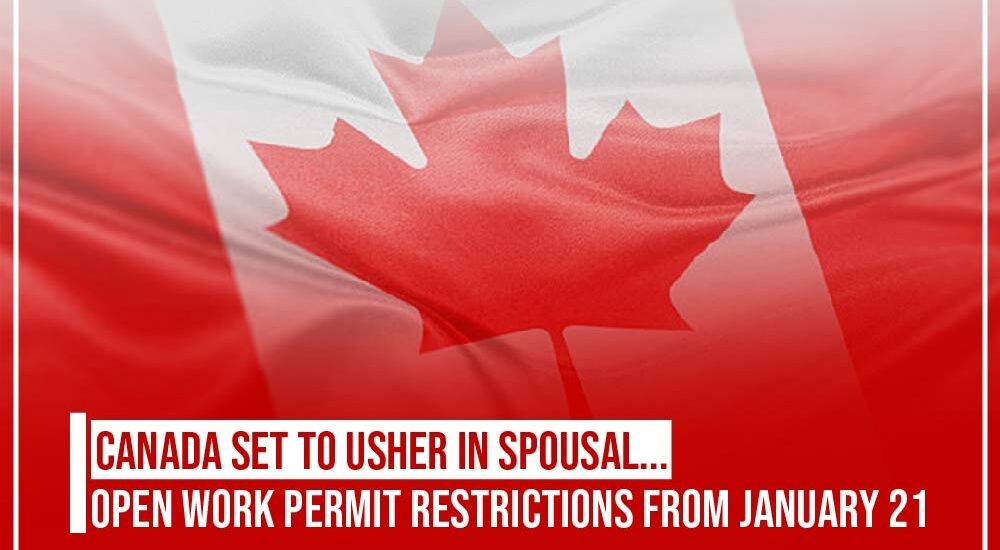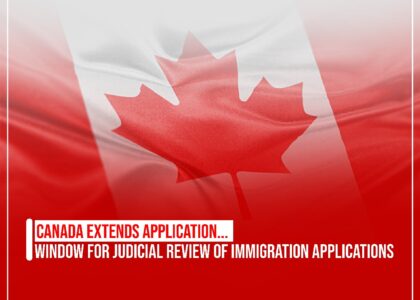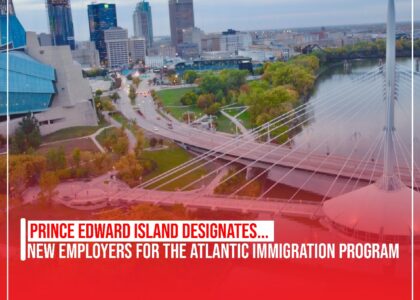Starting January 21, 2025, significant changes are set to take place in Canada’s immigration policy, particularly regarding spousal open work permit. The Canadian immigration authority, Immigration, Refugees and Citizenship Canada (IRCC), will implement restrictions aimed at curbing the growth of temporary residents in the country. These changes will impact spouses of international students, foreign workers, and dependent children of international students and temporary foreign workers.
As part of broader efforts to control the influx of temporary residents in Canada, these restrictions are expected to have a notable effect on families of international students and foreign workers. The government’s ultimate goal is to reduce the percentage of temporary residents from 6.5% to 5% of Canada’s total population by 2025. With this in mind, it is crucial for those affected by these changes to stay informed and prepare for the upcoming adjustments.
In this article, we will provide a comprehensive breakdown of the upcoming work permit changes, how they will impact families, and what you need to know about the new criteria.
Key Changes in Spousal Open Work Permit Eligibility
Starting January 21, 2025, work permit eligibility for the spouses of international students will be significantly limited. Under the new restrictions, only spouses of international students enrolled in specific master’s degree and doctoral programs will be eligible to apply for open work permits. This change comes after a previous restriction introduced in April 2024, which stopped issuing open work permits for spouses of international students, except for those in master’s or doctoral programs, and some professional degree programs.
New Conditions for Spouses of International Students:
- Master’s Degree Programs: Open work permits will be granted to spouses of international students enrolled in master’s degree programs, provided that the program’s duration is at least 16 months.
- Doctoral Degree Programs: Spouses of international students pursuing doctoral degrees will continue to be eligible for open work permits.
- Professional Degree Programs: A select group of professional degree programs may also qualify, with further details expected soon.
An open work permit allows spouses to work anywhere in Canada, without restrictions on specific employers or job types. This flexibility is an attractive feature for those accompanying international students, as it provides them with the opportunity to contribute to Canada’s economy during their stay.
Also Read: New Zealand Announces Seasonal Work Visa Opportunities for 2025: A Guide for International Workers
Impact on Spouses of Foreign Workers
The restrictions will also affect the spouses of foreign workers, specifically those employed under Canada’s Temporary Foreign Workers Program (TFWP) and International Mobility Program (IMP). The new rules will limit open work permits to spouses of foreign nationals who fall under the following categories:
Eligible Spouses of Foreign Workers:
- Managerial or Professional Occupations: Spouses of workers in managerial or professional roles will remain eligible for open work permits.
- Labor Shortage Sectors: Spouses of foreign workers employed in sectors experiencing labor shortages will also continue to qualify for open work permits.
- Duration of the Work Permit: A new condition will require that the foreign worker must have at least 16 months remaining on their work permit when their spouse applies for an open work permit. This requirement was not in place previously, so it represents a significant change in eligibility.
Exceptions:
- Spouses of workers covered by free trade agreements (such as NAFTA or CETA) will not be affected by these changes.
- Spouses of foreign workers transitioning to permanent residence will also remain unaffected by the new restrictions.
These changes aim to align Canada’s immigration policies with its broader strategy of managing temporary residents while ensuring that work permits are granted to those who fill critical labor shortages in the country.
Restrictions on Work Permits for Children of International Students and Foreign Workers
Another notable change will impact dependent children of international students and temporary foreign workers. Starting January 21, 2025, working-age dependent children will no longer be eligible for family open work permits. Currently, dependent children who are of working age may apply for work permits in Canada. However, under the new restrictions, this option will no longer be available.
What Does This Mean for Families?
- Dependent children of international students and temporary foreign workers will no longer have the opportunity to apply for work permits as part of their family open work permit status.
- This change reflects the Canadian government’s broader efforts to manage the increasing number of temporary residents and ensure that work permits are prioritized for specific, high-demand roles.
Existing Open Work Permits to Remain Valid
It’s important to note that existing open work permits that have already been approved under the current rules will remain valid until their expiration dates. This means that individuals who already hold open work permits under the existing criteria will not be impacted by the new restrictions, at least until their permits expire.
Additionally, family members who currently hold work permits can still apply for renewals under the same conditions as their original application. If the renewal request is made under the same criteria as the original application, and the requested duration aligns with the principal applicant’s study or work permit, it will be processed in accordance with the existing rules.
Canada’s Approach to Managing Temporary Residency
These work permit changes are part of Canada’s ongoing efforts to manage the growth of its temporary resident population, which has surged in recent years. In 2019, Canada hosted approximately 437,000 temporary residents, a number that has skyrocketed to around 1.2 million by 2023. This dramatic increase in temporary residents, including international students and foreign workers, has prompted the Canadian government to implement measures to curb further growth.
Immigration Minister Marc Miller has emphasized that not everyone who wishes to come to Canada will be able to do so. The government is committed to strengthening its temporary residence programs while maintaining the integrity of the immigration system. These restrictions aim to ensure that Canada’s immigration framework remains sustainable and balanced, while also addressing the changing landscape of labor market demands.
Further Changes Expected?
Immigration experts believe that these restrictions may not be the final measures introduced by Canada’s immigration agency. As Canada approaches the 2025 elections, there may be additional, more stringent immigration policies or regulations to manage the influx of temporary residents. It’s important for potential applicants and their families to stay updated on any new developments to avoid missing important deadlines or changes in eligibility.
Conclusion
The introduction of work permit restrictions for spouses and dependent children of international students and foreign workers marks a significant shift in Canada’s immigration landscape. These changes are part of Canada’s broader strategy to manage the growth of its temporary resident population, which has expanded rapidly in recent years.
For those affected by these changes, it is important to understand the new eligibility criteria, the types of work permits that will remain available, and the timelines for application. While existing open work permits will remain valid until their expiration, future applicants will need to meet the new conditions to qualify for work permits.
If you or your family are planning to apply for work permits in Canada, make sure to consult with an immigration expert to navigate these changes effectively and ensure compliance with the new regulations.





